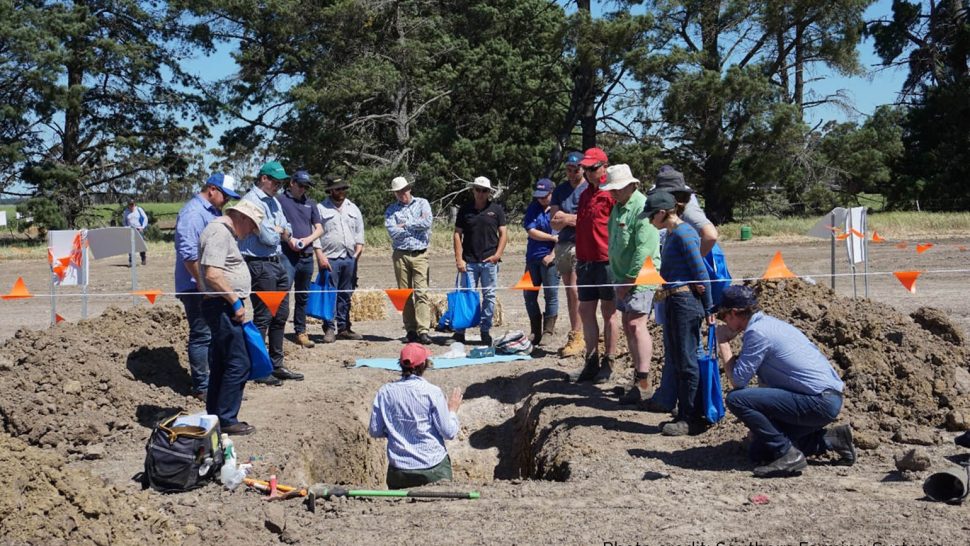Translating research outputs into tangible, practical outcomes for farmers can be challenging. A new Soil CRC project is addressing the disconnect between research, grower groups, and farmers that often leads to innovations failing to reach the people who can benefit most.
Led by Soil CRC farming group participants, the project aims to accelerate the delivery of Soil CRC innovations to farmers to increase adoption and engagement.
Project Leader Bret Ryan, CEO of Southern Farming Systems in Victoria, said the involvement of the farming groups is critical to the success of the project.
“The participating farming groups will drive our research efforts, providing on-the-ground intelligence and experience in engaging with farmers across Australia’s key cropping regions,” Mr Ryan said.
Joining Southern Farming Systems are West Midlands Group in Western Australia, Birchip Cropping Group in Victoria, Central West Farming Systems in NSW and Burdekin Productivity Services in Queensland. Rounding out the project team is Charles Sturt University, who will provide the research support.
“The project team will collaborate with key Soil CRC staff and participants to identify the most appropriate delivery pathways for our research outputs and innovations,” Mr Ryan said.
The outputs will be themed or ‘packaged’ to provide integrated solutions that meet farmers’ needs.
“An example of this may be packaging the Soil CRC’s farm-ready resources on improved management of sandy soils, decision support tools, and soil stewardship information to provide a solution to farmer problems or opportunities,” Mr Ryan explained.
The outputs will be filtered into three pathways that expedite the translation of research to on-ground use:
- An incubator program for novel innovations
- Targeted extension for ready-to-adopt outputs
- General awareness building campaigns.
This research is fuelled by the key learnings coming out of Program 1 of the Soil CRC, which provide information on farmers’ needs and drivers, why research is adopted and how and when to engage with growers.
“The project will create a new model for accelerated research translation that will help to maximise the Soil CRC’s impact and provide a legacy framework for future CRCs and other soil research and extension programs to follow,” Mr Ryan said.
This project received $400,000 through the Soil CRC’s latest investment round and is supported by almost $900,000 of in in-kind contributions from project participants over the next two and a half years.

